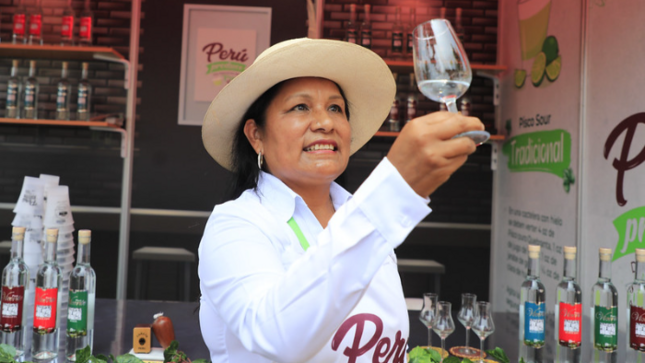
Lima, Peru – The Ministry of Production (PRODUCE) has reaffirmed its commitment to promoting, protecting, and strengthening Peru's iconic spirit, Pisco, following UNESCO's recent validation and recognition of historical documents confirming its Peruvian origin. These manuscripts, dating from 1587 to 1613, have been inscribed on the Memory of the World Programme.
"The value of these manuscripts goes beyond their antiquity. There is no older historical record that demonstrates the origin of Pisco. This achievement represents a triumph for Peruvian identity and for the efforts of our producers," stated the Minister of Production, Sergio González Guerrero.
PRODUCE is working on public policies aimed at strengthening domestic production, reviving the economy, and consolidating Pisco as an icon of Peruvian identity. Through the Vice Ministry of SMEs and Industry, PRODUCE leads the National Pisco Commission (CONAPISCO), an entity that develops strategies to promote, recover domestic demand, and improve the conditions necessary for sustained growth in Pisco exports.
Minister González highlighted the work of Pisco producers in defending cultural heritage. "This UNESCO recognition supports the efforts made by CONAPISCO to guarantee the quality and authenticity of Pisco," he emphasized.
Pisco producers play a fundamental role in preserving and promoting this spirit, considered a Cultural Heritage of the Nation. Their work goes beyond production: it includes caring for the vineyards, rigorously selecting quality grapes, and applying traditional methods that ensure an authentic product.
In this effort, the Technological Institute of Production (ITP) acts as a key ally, offering technical support, training, and research to optimize production processes, improve the sector's competitiveness, and ensure that Pisco maintains its prestige both nationally and internationally.
Pisco Production in Peru
Peru currently produces 7.4 million liters of Pisco per year, with the regions of Ica and Lima being the main producing areas, concentrating 85% of the total, followed by Arequipa (8%), Tacna (6%), and Moquegua (1%). This spirit exclusively uses aromatic and non-aromatic grape varieties such as Quebranta, Italia, Torontel, Albilla, Negra Criolla, Mollar, Moscatel, and Uvina and is recognized for its artisanal process and high quality.
Internationally, Pisco is positioned as a leader in distilled spirits exports. Up to October 2024, exports reached 1 million liters, generating revenues of $7.34 million. The main markets are the United States (36%), Japan (12%), and Spain (10%).
[Copyright (c) Global Economic Times. All Rights Reserved.]






























